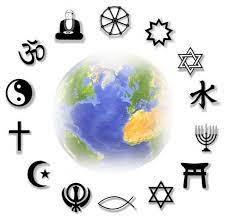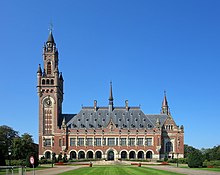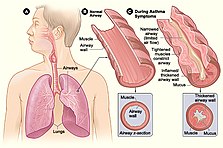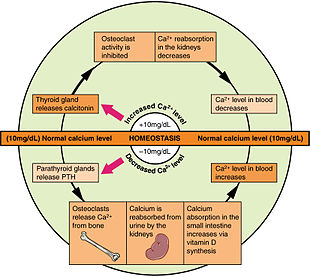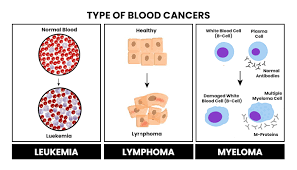We're for all- ALL are for us for the greater interest of Humanism-Truth-Facts-Friendship-Unity-Participation including Physico-Mental Sound Health with Spirituality, enrichment through ''TOTAL HEALTH SOLUTION'' to a Well-furnished GOALofTruth alloted for all in real sense ;
From wikipedia & other reliable sources ( Poets, Writers, Thinkers, Researchers, Free Lancers, Philosophers, Theologists, Scientists, Orators, Sociologists and Photographers +Artists-Musicians, WHO, UN & etc.) we can learn as follows :


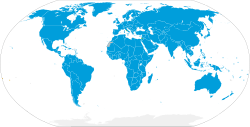
The United Nations (UN) is an intergovernmental organization whose stated purposes are to maintain international peace and security, develop friendly relations among nations, achieve international cooperation, and be a centre for harmonizing the actions of nations.[2] It is the world's largest and most familiar international organization.[3] The UN is headquartered on international territory in New York City, and has other main offices in Geneva, Nairobi, Vienna, and The Hague (home to the International Court of Justice).
The UN was established after World War II with the aim of preventing future world wars, succeeding the League of Nations, which was characterized as ineffective.[4] On 25 April 1945, 50 governments met in San Francisco for a conference and started drafting the UN Charter, which was adopted on 25 June 1945 and took effect on 24 October 1945, when the UN began operations. Pursuant to the Charter, the organization's objectives include maintaining international peace and security, protecting human rights, delivering humanitarian aid, promoting sustainable development, and upholding international law.[5] At its founding, the UN had 51 member states; with the addition of South Sudan in 2011, membership is now 193, representing almost all of the world's sovereign states.[6]

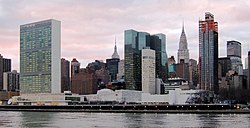
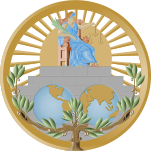
The organization's mission to preserve world peace was complicated in its early decades by the Cold War between the United States and Soviet Union and their respective allies. Its missions have consisted primarily of unarmed military observers and lightly armed troops with primarily monitoring, reporting and confidence-building roles.[7] UN membership grew significantly following widespread decolonization beginning in the 1960s. Since then, 80 former colonies have gained independence, including 11 trust territories that had been monitored by the Trusteeship Council.[8] By the 1970s, the UN's budget for economic and social development programmes far outstripped its spending on peacekeeping. After the end of the Cold War, the UN shifted and expanded its field operations, undertaking a wide variety of complex tasks.[9]
The UN has six principal organs: the General Assembly; the Security Council; the Economic and Social Council (ECOSOC); the Trusteeship Council; the International Court of Justice; and the UN Secretariat. The UN System includes a multitude of specialized agencies, funds and programmes such as the World Bank Group, the World Health Organization, the World Food Programme, UNESCO, and UNICEF. Additionally, non-governmental organizations may be granted consultative status with ECOSOC and other agencies to participate in the UN's work.
The UN's chief administrative officer is the secretary-general, currently Portuguese politician and diplomat António Guterres, who began his first five year-term on 1 January 2017 and was re-elected on 8 June 2021. The organization is financed by assessed and voluntary contributions from its member states.
The UN, its officers, and its agencies have won many Nobel Peace Prizes, though other evaluations of its effectiveness have been mixed. Some commentators believe the organization to be an important force for peace and human development, while others have called it ineffective, biased, or corrupt.

The Charter of the United Nations (UN) is the foundational treaty of the UN, an intergovernmental organization.[1] It establishes the purposes, governing structure, and overall framework of the UN system, including its six principal organs: the Secretariat, the General Assembly, the Security Council, the Economic and Social Council, the International Court of Justice, and the Trusteeship Council.
The UN Charter mandates the UN and its member states to maintain international peace and security, uphold international law, achieve "higher standards of living" for their citizens, address "economic, social, health, and related problems", and promote "universal respect for, and observance of, human rights and fundamental freedoms for all without distinction as to race, sex, language, or religion".[2] As a charter and constituent treaty, its rules and obligations are binding on all members and supersede those of other treaties.[1][3]
During the Second World War, the Allies—formally known as the United Nations—agreed to establish a new postwar international organization.[4] Pursuant to this goal, the UN Charter was discussed, prepared, and drafted during the San Francisco Conference that began 25 April 1945, which involved most of the world's sovereign nations.[5] Following two-thirds approval of each part, the final text was unanimously adopted by delegates and opened for signature on 26 June 1945;[6][7] it was signed in San Francisco, United States, by 50 of the 51 original member countries.[6][Note 1]
The Charter entered into force on 24 October 1945, following ratification by the five permanent members of the United Nations Security Council—China,[Note 2] France,[Note 3] the Soviet Union,[Note 4] the United Kingdom, and the United States—and a majority of the other signatories; this is considered the official starting date of the United Nations, with the first session of the General Assembly, representing all 51 initial members, opening in London the following January. The General Assembly formally recognized 24 October as United Nations Day in 1947, and declared it an official international holiday in 1971. With 193 parties, most countries have now ratified the Charter.
The Charter consists of a preamble and 111 articles grouped into 19 chapters.[1]
The preamble consists of two principal parts. The first part contains a general call for the maintenance of peace and international security and respect for human rights. The second part of the preamble is a declaration in a contractual style that the governments of the peoples of the United Nations have agreed to the Charter and it is the first international document regarding human rights.
- Chapter I sets forth the purposes of the United Nations, including the important provisions of the maintenance of international peace and security.
- Chapter II defines the criteria for membership in the United Nations.
- Chapters III–XV, the bulk of the document, describe the organs and institutions of the UN and their respective powers.
- Chapters XVI and Chapter XVII describe arrangements for integrating the UN with established international law.
- Chapters XVIII and Chapter XIX provide for amendment and ratification of the Charter.
The following chapters deal with the enforcement powers of UN bodies:
- Chapter VI describes the Security Council's power to investigate and mediate disputes;
- Chapter VII describes the Security Council's power to authorize economic, diplomatic, and military sanctions, as well as the use of military force, to resolve disputes;
- Chapter VIII makes it possible for regional arrangements to maintain peace and security within their own region;
- Chapters IX and Chapter X describe the UN's powers for economic and social cooperation, and the Economic and Social Council that oversee these powers;
- Chapters XII and Chapter XIII describe the Trusteeship Council, which oversaw decolonization;
- Chapters XIV and Chapter XV establish the powers of, respectively, the International Court of Justice and the United Nations Secretariat.
- Chapters XVI through Chapter XIX deal respectively with XVI: miscellaneous provisions, XVII: transitional security arrangements related to World War II, XVIII: the charter amendment process, and XIX: ratification of the charter
Peace, dignity and equality on a healthy planet 


COMMENTS FROM Dr. P. C. Majumder (- Author. Writer, Humanist, Physician (Physico-Mental & Spiritual) and Cosmopolitan Researcher in favor of ALL-CREATION Universally RESIDE++++ in positive ways for universal UNITY & LOVE++++) as follows:
1.
2.
3. 4. 5. 6. 7. 8. 8. 9. 10.
We're for all- ALL are for us for the greater interest of Humanism-Truth-Facts-Friendship-Unity-Participation to a Well-furnished GOAL of Truth from which all shall have ++++;
We're indebted to WIKIPEDIA +WHO & UN+ for a short while and as 'Guardian QUOTATION' from Global WISER ONE. And have quoted many images, article's, writings etc. by great & humanist writers+++ from global thinkers, Well-wishers, Wiseman, Humanists and Others Living-Nonlivings in favor of HUMANISM to share more answers of Researchers-readers+++++....
To reach the 'GOAL of FULFILNESS' unitedly to alive in the "DESTINATION of TRUTH-FACTS-CHARMEST AMICABLITY" of Natural Joyful POSSIBILITIES+++
BREAST CANCER, TUMOR, Arsenic +Chemical Poisoning, Corona, Heart-Lung diseases, Neurological-Hormonal-Immunal-Infectious diseases with related complexities are possible to cure properly-easily-scientifically-accurately (100%) by our positive medical services only with+++++balance confirming
Medicine-Food control-proper nursing-medicinal massage-Medicinal Yogas- Meditation, Physiotherapy special etc. without side effects & Repeatation as per contract through user-friendly approved ways of CURE++++. please fill our form as below or click:
After confirming contract-letter between you+++. We serve you properly with no Chemo-therapy-radiation therapy -SURGICAL Complexities (Physical-Mental) to CURE+++ upto our Limit to recover your both-health from illness.



